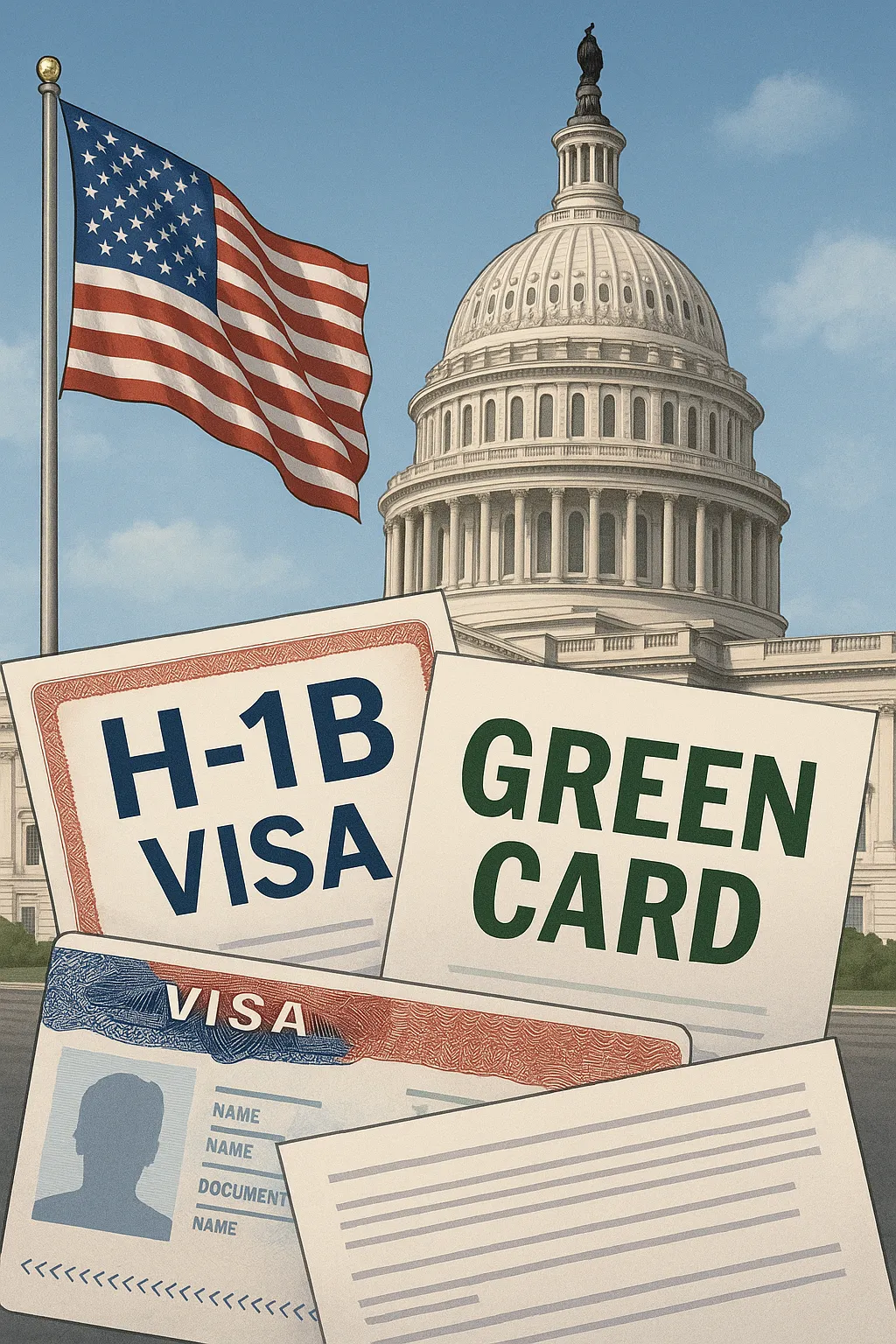U.S. Announces Sweeping H-1B and Green Card Overhaul

Washington, Aug. 28, 2025 - In a major shift in U.S. immigration policy, the Biden administration today unveiled detailed proposals to replace the current H-1B lottery system with a wage-based allocation model and to introduce a new “Gold Card” permanent-residency track for foreign investors.
A White House fact sheet released this morning outlines the key components of the plan, which had been previewed by Commerce Secretary Howard Lutnick in recent weeks. Under the proposal:
- H-1B petitions would be ranked by the beneficiary’s offered wage, with higher-paid applicants given priority. Entry-level salaries would no longer receive automatic lottery slots, ending the current random-draw process for the 65,000 general-cap visas and 20,000 advanced-degree exemptions.
- The new Gold Card would grant green cards to foreign nationals investing a minimum of $5 million in U.S. businesses that create at least 20 American jobs. The program is intended to attract high-net-worth individuals and inject capital into the domestic economy.
- Per-country green-card limits would double from 7 percent to 15 percent, aiming to alleviate decades-long backlogs predominantly affecting Indian and Chinese nationals.
Administration officials say the overhaul will better align immigration with national economic goals, but business groups warn it could exacerbate talent shortages in tech and engineering.
Reactions
- The U.S. Chamber of Commerce criticized the wage-based system as “overly restrictive,” arguing that it would shut out promising early-career professionals.
- Immigrant-rights advocates cautioned that the Gold Card favors wealth over skill, calling for expanded pathways for workers and their families.
- Republican lawmakers signaled readiness to propose alternative bipartisan reforms, including a premium-processing fee of up to $20,000 to expedite long-waiting green-card applicants.
The administration will solicit public comment on the proposals over the next 60 days before finalizing rule changes. Implementation is expected to begin by early 2026, pending legal review and budgetary clearance.
Categories
Beauty and fashion Business and finance Climate Entertainment Food and drink Games Health Hobbies and leisure Jobs and education Law and government Other Politics Science Shopping Sports Technology Travel and transportationRecent Posts
Tags